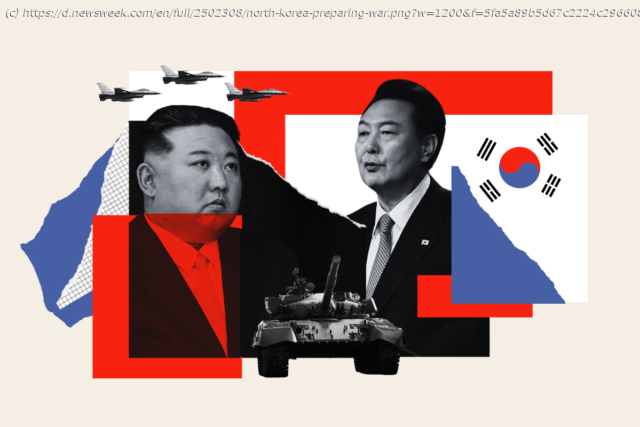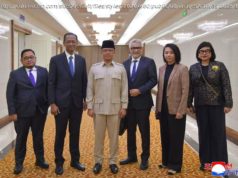Pyongyang branded Seoul the « principal enemy » earlier this year, abandoning decades of efforts toward reunification of the peninsula.
If South Korea infringes on North Korean waters, airspace or territory one more time, a senior official in the secretive nation recently warned, an « immediate retaliatory attack will be launched. »
On Saturday, a North Korean Defense Ministry official said authorities had discovered a South Korean drone in one of Pyongyang’s districts that « crashed » up to a week earlier. It was designed for long-range reconnaissance, Pyongyang said, and may have been meant to spread anti-regime messaging, according to North Korea’s KCNA state news agency.
Should it happen again, the official said, North Korea would be forced to respond.
This type of bellicose messaging isn’t new from Pyongyang.
« North Korea’s one-sided claims are not worth verifying, nor do they merit a response », the South Korean Defense Ministry said after the alleged drone attack. But « if the safety of our citizens is threatened in any way », South Korea has since said, « our military will respond with stern and thorough retaliation. »
Tensions on the divided peninsula are the worst in years. Earlier this month, North Korea blew up parts of roads and railway lines heading for the border after its army said it would « completely separate » the two Koreas under the cloud of the « imminent danger of war. »
The two nations are still technically at war and have been since an armistice marked the end of the Korean War in 1953.
With Pyongyang now thought to have sent troops to Russia, possibly for deployment in Ukraine, North Korea’s somewhat surprising moves beg the question: Could the hermit nation now be seriously preparing for war with its southern neighbor?Flashpoints of Tension
North Korea’s path in recent years, under the hand of supreme leader Kim Jong-un, has veered in a new direction, with the language around the reported drone incursions and the severing of transport across the peninsula a key part of this, said Andrew Yeo, a senior fellow with the Washington, D.C.-based Brookings Institution’s Center for Asia Policy Studies.
Pyongyang has formally renounced the goal of reunification with the south, a decades-held objective that has cast Seoul as the « principal enemy. » Flashpoints of tension such as rubbish-filled balloons gliding over the de-facto border and speakers blasting across the demilitarized zone have dotted the past few months of spiky relations.
Inter-Korea summits in previous years are now firmly a thing of the past, Kim pulling the country far closer to Russian President Vladimir Putin while Seoul’s anxieties deepen over the hand-up Moscow is believed to be providing to Pyongyang with its weapons—including nuclear—development programs.






